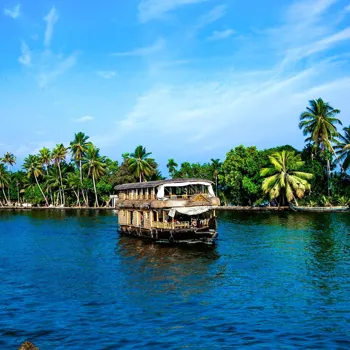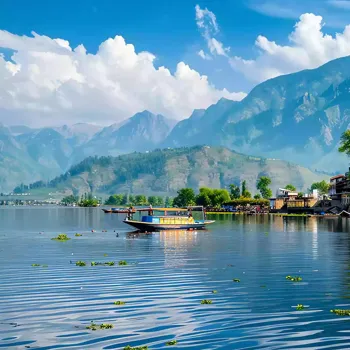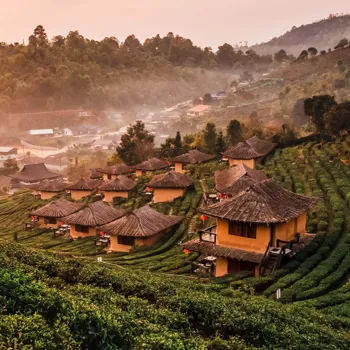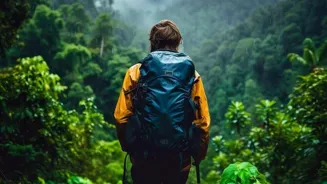Unveiling Ethical Tourism in India: Dive into 10 Tips for Responsible Travel! Explore, respect, and make a difference. Read on!
Namaste, globe-trotters! India, with its vibrant culture, stunning landscapes,
and warm hospitality, beckons travellers from every corner of the world. But as we pack our bags and prepare to explore this incredible nation, it's crucial to remember that our actions have an impact.
Ethical tourism isn't just a buzzword; it's a commitment to travelling in a way that benefits local communities, respects the environment, and preserves cultural heritage. So, let's dive into 10 practical tips to make your Indian adventure a responsible and enriching experience!
Instead of heading straight for international hotel chains and familiar fast-food joints, make a conscious effort to support local businesses. Opt for family-run guesthouses, eat at traditional dhabas (roadside restaurants), and shop at local markets. Not only will you get a more authentic taste of India, but you'll also be directly contributing to the livelihoods of the people who call this land home. Imagine sipping chai from a roadside stall, hearing stories from the chai wallah about his family and village. This provides a taste of the real India, and the money directly boosts his income. This simple act helps support the local economy and ensures that tourism benefits the community, not just large corporations. By choosing locally owned businesses, you become a part of a sustainable cycle that uplifts communities and preserves their unique way of life. Remember, every rupee you spend locally has a ripple effect, empowering individuals and strengthening the very fabric of Indian society.
Think about it, imagine all the tourist supporting a shop that sells plastic items. If a tourist decides not to buy that and look for a eco friendly bag then the shopkeeper might realize that the customers needs are changing.
Respect Local Customs & Traditions
When in Rome, Do as the Romans Do (or in this case, when in India...)
Respect local customs when traveling in India, show cultural sensitivity
India is a land of diverse cultures and traditions, and it's important to be mindful of local customs. Dress modestly, especially when visiting religious sites. Remove your shoes before entering temples or homes.
Ask for permission before taking photographs of people, and be respectful of their beliefs and practices. A little research beforehand can go a long way in showing respect for the local culture. Observe how people greet each other, how they dress ,and what is considered polite behavior.
Paying attention to these details and adapting your own behavior accordingly demonstrates your willingness to learn and appreciate the local culture. Remember, you are a guest in their land, and treating their customs with respect is the foundation of ethical tourism.
It often happens that people do not understand one simple custom like removing shoes before entering the temple and get into an argument.
Minimize Your Environmental Impact
Leave Only Footprints, Take Only Memories
Minimize environmental impact as a tourist in India
India faces significant environmental challenges, so it's crucial to minimize your impact as a tourist. Avoid single-use plastics, carry a reusable water bottle, and dispose of waste responsibly. Choose eco-friendly accommodations and transportation options whenever possible.

Trekking in the Himalayas? Be sure to follow Leave No Trace principles, packing out everything you pack in. Small changes in your habits can make a big difference in preserving India's natural beauty.
Imagine if every tourist in India consciously reduced their plastic consumption - the impact would be tremendous. Simple things like carrying your own shopping bag, refusing plastic straws, and opting for reusable containers can collectively contribute to a cleaner and healthier environment.
Choosing eco-friendly hotels can improve the environmental footprint. So, be a responsible traveller, leave no trace behind, and help protect the precious natural resources of India for future generations.
Avoid activities exploiting animals; support sanctuaries and conservation
Avoid activities that exploit animals, such as elephant rides, snake charming, or visiting zoos with unethical practices. These activities often involve cruelty and contribute to the suffering of animals.

Instead, support sanctuaries and wildlife reserves that prioritize animal welfare and conservation. Observe animals in their natural habitat from a safe distance, and educate yourself about the challenges they face.
Remember, animals are sentient beings, and they deserve to be treated with respect and compassion. By refusing to participate in activities that exploit them, you send a clear message that animal welfare is a priority.
There are many wonderful opportunities to connect with nature in India without harming animals. Support wildlife conservation efforts that help protect their natural habitats.
Learning basic Hindi phrases enhances travel experience, shows cultural respect, builds rapport
Learning a few basic Hindi phrases can greatly enhance your travel experience and show respect for the local culture. Even simple greetings like "Namaste" (hello) and "Dhanyavad" (thank you) can go a long way in building rapport with locals.

It also shows that you are willing to make an effort to connect with them on a personal level. People appreciate it when travellers try to learn their language, and it can open doors to deeper cultural understanding.
So, brush up on your Hindi, practice your pronunciation, and be prepared to surprise the locals with your linguistic skills. You might find yourself making new friends, receiving insider tips, and experiencing India in a whole new light.
Simple courtesies can bridge cultural gaps and create meaningful connections.
Water scarcity is a major issue in many parts of India, so it's essential to be mindful of your water usage. Take shorter showers, turn off the tap while brushing your teeth, and report any leaks to your hotel. Consider using eco-friendly toiletries that are gentle on the environment. By conserving water, you are helping to preserve this precious resource for local communities and future generations. Simple changes in habits, like reusing towels and linens, can also make a significant difference. Remember, water is a valuable resource, and it's our responsibility to use it wisely. By being mindful of our consumption, we can contribute to a sustainable future for India.
It is important to understand that clean water is a problem in few communities and we should be concious of it.

Bargain respectfully in Indian markets for fair trade
Bargaining is a common practice in Indian markets, but it's important to negotiate fairly. Remember that the vendors are often trying to make a living, and haggling too aggressively can be disrespectful.
Be willing to pay a fair price for goods and services, and don't try to exploit their vulnerability. Instead, approach bargaining as a friendly negotiation, and aim for a mutually beneficial outcome.
A good rule of thumb is to research the average price of an item before you start bargaining, and be willing to pay a price that reflects its value and the vendor's effort.
Haggling too hard can also harm the local economy by driving down prices and making it difficult for vendors to make a sustainable income. So, negotiate with respect and empathy, and remember that a little generosity can go a long way.
Travel During Off-Season
Avoid the Crowds and Contribute to Sustainable Tourism
Travel off-season for sustainable tourism, less crowds, and authentic experiences
Consider travelling during the off-season or shoulder season to avoid the crowds and contribute to sustainable tourism. Visiting popular destinations during peak season can put a strain on local resources and infrastructure.

By travelling during less crowded times, you can help to distribute the benefits of tourism more evenly throughout the year. You'll also have a more authentic and immersive experience, as you'll be able to interact with locals without the distractions of large crowds.
Plus, you might even find better deals on accommodations and activities. Travelling during the off-season is a win-win for both travellers and local communities.
It helps to reduce the environmental impact of tourism, supports local businesses during quieter times, and allows you to experience India in a more authentic and meaningful way.
Educate yourself about India before traveling for responsible tourism
Before you travel to India, take the time to educate yourself about the country's culture, history, and current issues. Read books, watch documentaries, and learn about the challenges facing local communities.
By understanding the context in which you are travelling, you'll be better equipped to make responsible choices and contribute to positive change. You can also support local organizations and initiatives that are working to address these challenges.
Knowledge is power, and the more you know about India, the more you'll be able to appreciate its beauty and complexity. Learning about the local history of a place before visiting is a great place to visit. Talking to the locals can provide more insights.
Inspire responsible travel in India for sustainable tourism
Once you've had your incredible and responsible travel experience in India, share your stories and inspire others to travel ethically. Talk to your friends and family about the importance of responsible tourism, and share your tips and insights on social media.
By spreading the word, you can help to create a more sustainable and equitable tourism industry. Encourage others to support local businesses, respect local customs, and minimize their environmental impact.
Together, we can make a difference in the way people travel and contribute to a brighter future for India and the world. Remember, every action counts, and by inspiring others to travel responsibly, you can help to create a ripple effect of positive change.
AI Generated Content. Glance/InMobi shall have no liability for the content

















![[WATCH] T20 World Cup 2026: Gautam Gambhir hosts dinner for Team India players ahead of Namibia clash](https://g-mob.glance-cdn.com/public/fc/image/7gXS1xdhs5Q0.webp)



